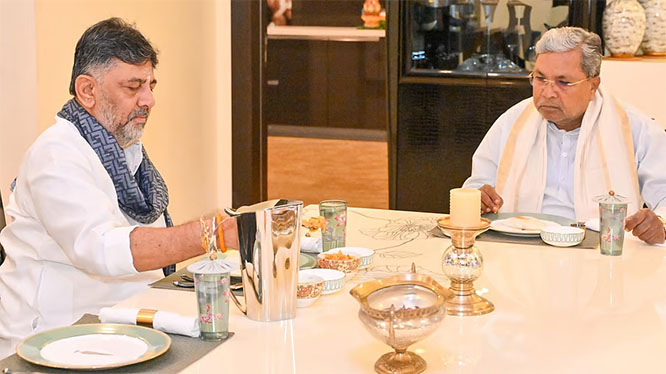
The Bharatiya Janata Party (BJP) has announced the replacement of 33 incumbent MPs with fresh candidates in its first list of 195 nominees for the forthcoming Lok Sabha elections.
As per this candidate list, five candidates for Delhi include Praveen Khandelwal from Chandani Chowk, dropping two-term MP and former Union Minister Harsh Vardhan. Late BJP leader Sushma Swaraj’s daughter Bansuri Swaraj has been named as the saffron party’s candidate from the New Delhi Lok Sabha constituency, replacing Union Minister Meenakshi Lekhi.
Some of these leaders have made headlines for their controversial, provocative and anti-Islamic remarks inside and outside Parliament, and the BJP's move to drop them sends a message that the party is taking no chances ahead of an election in which it faces a joint Opposition.
The BJP named Ramvir Singh Bidhuri from South Delhi, dropping Ramesh Bidhuri. From the West Delhi seat, the BJP replaced two-term MP Parvesh Sahib Singh Verma with Kamaljeet Sehrawat.
In Madhya Pradesh, seven sitting MPs have been replaced. The saffron party named Bharat Singh Kushwaha from Gwalior, replacing MP Vivek Narayan Shejwalker.
Union Minister Jyotiraditya Scindia has been named from Guna, dropping Krishnapal Singh Yadav. Former Chief Minister Shivraj Singh Chouhan from Vidisha, currently held by MP Ramakant Bhargava. In Bhopal, Alok Sharma will be the candidate instead of Sadhvi Pragya Singh.
BJP nominee Lata Wankhede has been named from the Sagar Lok Sabha seat, replacing Rajbahadur Singh. Virendra Singh Khatik will contest from Tikamgarh seat. Party nominee Anita Nagar Singh will contest from Ratlam seat, currently held by BJP MP Guman Singh Damor.
Besides this, the list also includes 11 seats from Assam, with five new faces and six current MPs. Parimal Suklabaidhya will contest from Silchar, previously held by Rajdeep Roy. Amar Singh Tisso, Bijuli Kalita Medhi, and Ranjit Dutta are contesting from Autonomous District (ST), Gauhati, and Tezpur respectively.
Union Minister Sarbanand Sonowal is the candidate from Dibrugarh, dropping sitting MP Rameswar Teli. Four new candidates are named for 11 seats in Chhattisgarh. Senior leader Brijmohan Agrawal from Raipur and Roop Kumari Choudhary from Mahasamund are among them.
In Gujarat, five incumbents have been replaced for 15 seats. Union Minister Mansukh Mandaviya will contest from Porbandar, currently held by party MP Rameshbhai Lavjibhai Dhaduk. In Rajkot, the BJP named Union Minister Parshottam Rupala as the candidate, dropping sitting MP Mohanbhai Kalyanji Kundariya.
Party nominee Rekhaben Hiteshbhai Choudhary will contest from the Banaskantha Lok Sabha seat, currently held by Prabhatbhai Savabhai Patel. Dineshbhai Kidarbhai Makwana replaced three-term MP Kirit Solanki on Ahmedabad West seat. BJP nominee Rajpalsinh Mahendrasinh Jadhav will contest from the Panchmahal seat, dropping sitting MP Ratansinh Magansinh Rathod.
Moreover, Manish Jaiswal and Samir Oraon are the new faces in Jharkhand. While Jaiswal replaced former Union Minister Jayant Sinha in Hazaribagh, Oraon replaced three-time MP Sudarshan Bhagat in Lohardaga seat.








Comments
Add new comment